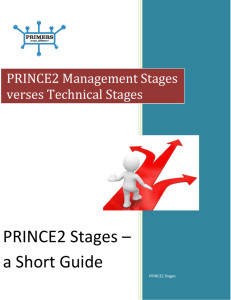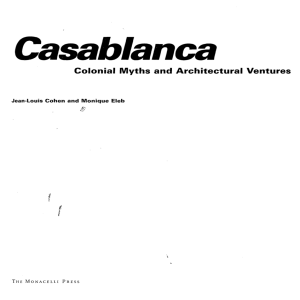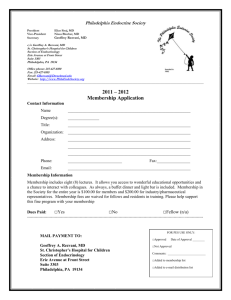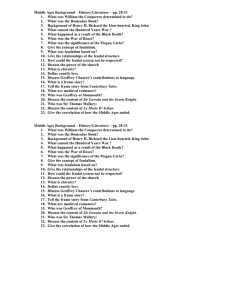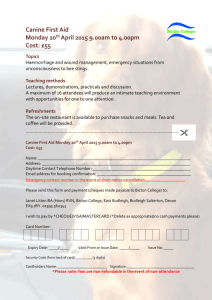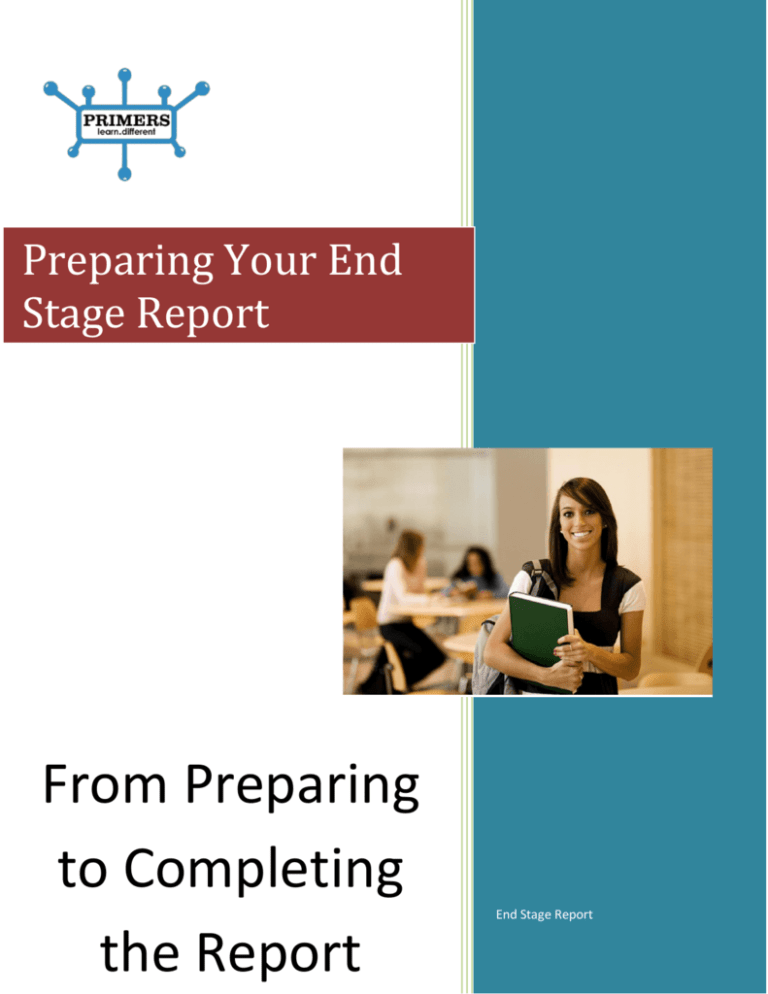
Preparing Your End
Stage Report
From Preparing
to Completing
the Report
End Stage Report
Preparing Your End Stage Report
End Stage Report
Copyright
Copyright © 2013 by David Geoffrey Litten
Cover and internal design © David Geoffrey Litten
First Edition, August 2013
http://www.prince2primer.com
All rights reserved. No part of this book may be reproduced in any form or by any electronic or
mechanical means including information storage and retrieval systems – except in the case of
brief quotations in articles or reviews – without the permission in writing from its publisher,
David Geoffrey Litten
All brand names and product names used in this book are trademarks, registered trademarks,
or trade names of their respective holders.
We are not associated with any product or vendor in this book.
CasaBlanca Publishing Corp |© David Geoffrey Litten 2013
2
Preparing Your End Stage Report
End Stage Report
The PRINCE2 process Managing a Stage Boundary is used to either prepare for an end stage assessment,
or for an exception assessment. For the purpose of this article, by shall only concentrate all the former.
The purpose of an end stage assessment it is to provide the project board with sufficient information to
make an informed choice about whether to proceed with the project or not.
Before discussing the content of an end stage report, is therefore important to understand the sources
of information that will be included within it. It makes sense therefore, to first look at the activities
within the Managing a Stage Boundary process itself.
The following diagram shows the typical route:
When the project manager sees the current stage nearing completion, it will trigger him to refer to the
Managing a Stage Boundary process as above.
The first step this to create the next stage plan which will be drawn from the top level details within the
project plan.
Using the PRINCE2 technique of product based planning, these top-level details will be decomposed into
a detailed level suitable for day to day management within the next stage.
The project manager will want to involve as many appropriate and relevant people as possible to ensure
a robust and achievable stage plan is created. In particular specialists team members, senior suppliers,
and project assurance should be involved in creating the next stage plan.
The project initiation document should be referenced, in particular, for the relevant standard
documents, since risk, quality, configuration management, and communication aspects of the project
will heavily influence the next stage plan.
CasaBlanca Publishing Corp |© David Geoffrey Litten 2013
3
Preparing Your End Stage Report
End Stage Report
As part of Product-Based planning, new products will be identified. These may consist of further refined
existing products or entirely new products. Whichever the case may be new product descriptions will
need to be created along with their relevant quality criteria.
For the quality register will need to be updated with the relevant information for carrying out quality
checks within the next stage.
Also, configuration item records will need to be created or modified for each new product in order to
track the status of that product.
As part of carrying out planning for the next stage, new or modified risks may be identified, and these
too will need to be entered into the risk register and their appropriate response actions included within
the next stage plan.
In a similar way any on-going issues and their actions may need to be included within the plan (unless
they are currently being dealt with).
As a consequence of creating the more detailed next stage plan, it is highly likely that the project plan
will need to be updated and refined. There are several reasons for this:
1. The newly created next stage plan will normally have a different stage end date, a different cost,
different products and different resources to those originally estimated within the project plan.
2. Since the current stage is now coming to close, actual information such as products, cost and end
dates will now need to be entered into the updated project plan.
3. The business environment may have changed since the project initiation document was signed off.
For example, the user group may have different objectives, or market forces may have changed.
Once the project plan has been updated, the business case also needs to be updated to ensure that the
project is still providing continued business justification.
For example project or operational costs may rise, schedules may be delayed, or new competitors may
have arrived and hence the end-product may need to be modified or enhanced.
Typically, the project manager and the project board executive will review sections of the business case
and update them necessary.
In a similar way to above the project manager and executive should review the organization's risk
appetite and the overall risk situation to ensure that it remains within risk tolerances.
They should also review the benefits review plan to ensure there has been updated that the results of
any benefit reviews that may have taken place, and that such results should be compared with the
expected results. Similarly any planned benefit reviews are included in the stage plan and the project
plan.
CasaBlanca Publishing Corp |© David Geoffrey Litten 2013
4
Preparing Your End Stage Report
End Stage Report
All of the above culminate in the creation of the End Stage Report as shown in this activity:
In the report stage end activity, the end stage report will be created which will be review by the project
board along with the other outputs of the managing a stage boundary process in order to decide
whether to proceed to the next stage of the project or not.
As you can see in the diagram above, the project manager may wish to create a lessons report,
particularly if certain lessons should be applied to the remainder of this project or would be useful to
other projects at this point in time.
It might be a useful reminder to remind you of the content and structure of a lessons report:
Lessons Report
•
•
•
•
•
Executive summary
Scope (project or stage)
What went well, what went badly, plus any recommendations.
Should cover:
- project management method
- specialist methods used
- project strategies
- project controls
- any abnormal events
Review of any useful measurements such as:
- effort to create products
- effectiveness of the Quality Management Strategy
Significant lessons may be clarified with details on:
- details of the event and its effect/impact
CasaBlanca Publishing Corp |© David Geoffrey Litten 2013
5
Preparing Your End Stage Report
End Stage Report
- causes or trigger
- early-warning indicators
- recommendations
Was triggered event identifies as a risk?
Finally, please find attached your End Stage Report MS WORD Template, as I am sure that this article will
make completing the document quite straightforward.
Remember, that this report will provide the bulk of the background and evidence to enable the Project
Board what to do next!
CasaBlanca Publishing Corp |© David Geoffrey Litten 2013
6
Preparing Your End Stage Report
End Stage Report
Check out more of my quality downloadable Project Management Video Training Products:
http://www.prince2primer.com
http://www.project-management-primer.com
http://www.directingaproject.com
http://www.apmic-primer.com
http://www.pm-primer.com
http://www.taskpack.com
http://www.msproject2010primer.com
…and coming soon…
http://www.earnedvalueprimer.com
http://www.apmp-primer.com
http://www.agileprojectmanagementprimer.com
http://www.msproject2013primer.com
CasaBlanca Publishing Corp |© David Geoffrey Litten 2013
7
Preparing Your End Stage Report
End Stage Report
About The Author
Dave is an Accredited Project Management Trainer
David spent 25 years as a senior Project Manager for USA multinationals, and has deep
experience in project management. He now develops a wide range of project-related
downloadable video training products under the Primer brand name. In addition, David runs
project management training seminars across the world, and is a prolific writer on the many
topics of project management.
CasaBlanca Publishing Corp |© David Geoffrey Litten 2013
8

